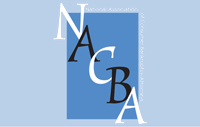Foreclosure Defense
Navigating the Long and Complicated Foreclosure Process
For the majority of people, their house is their most valuable asset as well as their beloved residence.
Unfortunately, real estate speculation and the huge number of foreclosures in the past years has impacted the entire real estate market. Even people who never took out a sub prime mortgage have
found themselves owing more on their home than they could get if they were to sell it.
The prospect of losing your home to foreclosure is extremely frightening. Fortunately, there are things you may
be able to do to stop foreclosure -- or at least limit the damage to your credit. We can also help you understand the tax consequences of your options.
Beware of Non-Attorney Foreclosure Counselors
Most of us have seen "home foreclosure counselors," "debt counselors" and "foreclosure rescue plans" being
advertised on TV, the Internet and even lawn signs. Unfortunately, most people facing home foreclosure or mortgage default who seek help from those sources find out that they do not
help.
Even if the programs are not cynical scams capitalizing on people's misery. they only offer short-term fixes do
nothing to help people stop foreclosure and manage their debt in the longer term.
Many legitimate non-lawyer debt counseling and foreclosure defense services are available. Most charge
approximately the same amount as a foreclosure defense attorney. These services offer excellent information and may be able to negotiate with your creditors, but they may not be able to help
you if your creditors will not budge.
As a lawyer, we have worked with both individuals and banks, and we understand what each side has at stake in
foreclosures. We can negotiate with your mortgage lender based on real information.
Short Sales and Deed in Lieu of Payment
Because of the current housing and mortgage environment, most people who are faced with foreclosure, have been
trying to sell their houses but can't sell for enough to pay off their mortgages. Meanwhile, their debt situation keeps getting worse.
This situation isn't good for you, and it's also not good for the bank. Foreclosing on your home may cost
the bank more than $50,000 in legal fees and other costs.
With the foreclosure situation so widespread, many banks may be willing to let you sell your house for less
than what you owe and forgive the rest of your debt.
While a short sale won't allow you to keep your home, it can substantially reduce the damage to your
credit. However, there are a number of considerations to take into account. For example, if your mortgage lender agrees to a short sale, the process is often very long. If your need
for debt relief is urgent, a short sale may simply take too long. Also, short sales are not usually available if you have a second mortgage.
Another possibility to limit the damage to your credit when foreclosure is inevitable is what's called a "deed
in lieu of payment" transaction. Basically, instead of forcing the bank to foreclose on you, the bank agrees to let you turn the property back over to them voluntarily. This saves the
bank legal and processing costs and lets them begin trying to sell the house right away.
Banks may not agree to a deed in lieu transaction if your home is worth substantially less than what you
owe.


